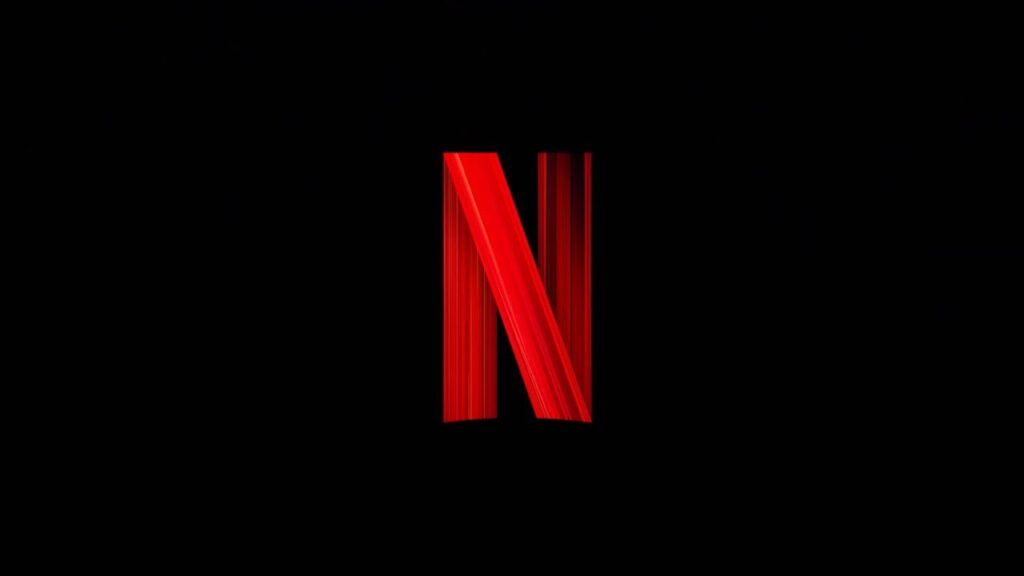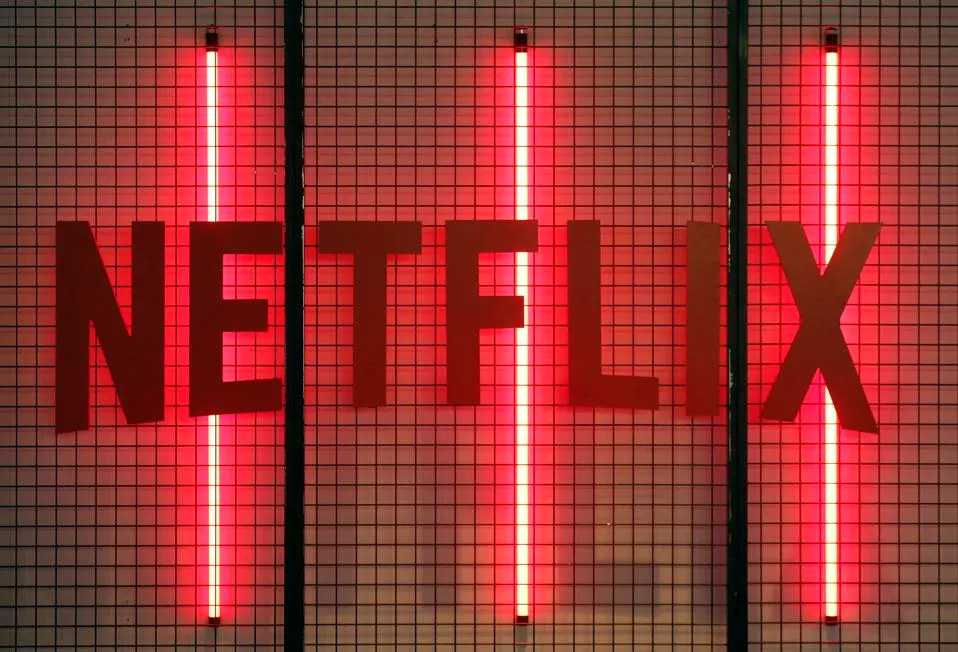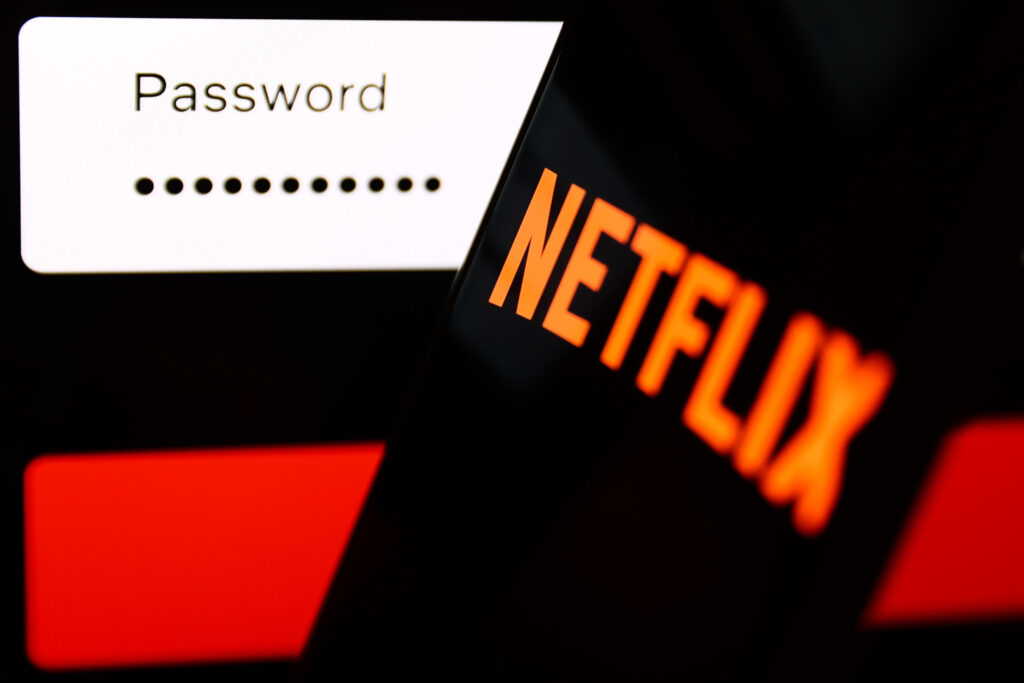Unlocking the world of endless entertainment, Netflix has become a household name in streaming services. With its vast library of movies and TV shows, it’s no wonder that many users are tempted to share their passwords with friends and family. However, as the popularity of password sharing grows, so does Netflix’s concern for its revenue. In this blog post, we will delve into the concept of Netflix’s password sharing fee and how it works. We will also explore the potential implications of Netflix’s crackdown on password sharing and its strategic shift in the streaming industry. So, if you’re curious about the ins and outs of Netflix’s password sharing fee, keep reading to uncover all the details.
Delving Deeper into Netflix’s Password Sharing Fee Concept

netflix
Netflix, a leading player in the global streaming space, has been grappling with the challenge of password sharing for a while. This practice, although common, has been a grey area in the company’s business model. Now, Netflix has decided to confront this issue head-on, not by penalizing its users, but by introducing an ingenious solution – a password sharing fee.
This new approach is a response to the fact that an estimated 100 million households worldwide are engaged in password sharing. A significant chunk of these, about a third, are based in the U.S and Canada. Instead of curbing this practice, Netflix aims to monetize it, thereby turning a potential loss into a revenue stream.
Netflix’s plan does not involve freezing shared accounts or restricting access to the primary account holder. Instead, the focus is on the multiple users accessing a single account from different households. The company’s innovative solution is the introduction of an additional fee for such users. This move has already been put to the test in Peru, Costa Rica, and Chile, with promising results.
Integral to this strategy is the concept of “sub accounts.” This feature allows the primary account holder to extend their subscription to two additional users outside their household. In essence, it legalizes password sharing while ensuring that Netflix earns revenue from it. This strategy is not only smart but also user-friendly, as it acknowledges the reality of password sharing without penalizing users for it.
Netflix’s password sharing fee is a revolutionary approach to a widespread issue. It demonstrates the company’s ability to adapt to user behavior and market realities while ensuring its revenue streams remain robust. This move could potentially set a precedent for other streaming services grappling with the same challenge.
As we delve deeper into the specifics of this strategy in the following sections, it becomes clear that Netflix’s move is not just about monetizing password sharing. It’s also about understanding and adapting to the evolving needs and behaviors of its global user base.
Decoding Netflix’s Additional Fee Strategy

netflix
Netflix, the globally renowned streaming service, has embarked on a novel journey to monetize the prevalent practice of password sharing. The proposed plan, which has been tested in selected countries, is set to revolutionize the streaming industry by introducing a fee for sub accounts. The pricing structure for these sub accounts is expected to vary across different regions, with a proposed range of $2.13 to $2.99 per month.
Netflix’s strategy is a testament to its commitment to accommodate user preferences. The company has designed a system that allows personalized profile information to be transferred seamlessly to these new sub accounts. This ensures that the transition is smooth and does not disrupt the viewing experience of its users. The viewing history and personalized recommendations, which form an integral part of the Netflix experience, will be preserved in these new accounts.
This innovative approach was elucidated by Netflix’s Chief Operating Officer, Greg Peters. He stated that the company’s objective is not to put an end to password sharing. On the contrary, Netflix aims to generate additional revenue from this widespread practice. While the exact revenue projection remains undisclosed, this strategy is deemed astute, especially in light of recent surveys. These surveys indicate that a staggering 80% of American Netflix users, who are currently using someone else’s password, would refrain from creating their own account if necessitated.
Netflix’s move to monetize password sharing is a game-changer in the streaming industry. It not only addresses a long-standing issue but also sets a precedent for other streaming platforms to follow. By introducing an additional fee for sub accounts, Netflix is transforming an issue into an opportunity, thereby demonstrating its adaptability to evolving market dynamics and user behavior. If you liked this post check out does netflix come with xfinity and why did netflix remove free trial?
As the world waits to witness the global implementation of this strategy, it is clear that Netflix is paving the way for a more structured, user-friendly, and profitable approach to password sharing. This move is expected to bolster Netflix’s revenue streams while ensuring a seamless and personalized viewing experience for its users.
Delving Deeper into Netflix’s Password Sharing Crackdown Implications

netflix password sharing
As Netflix embarks on this bold new direction, there are several potential implications that are worth examining. The company has been transparent about its intent to tweak its pricing strategy and continuously evaluate the testing phase before making this feature available worldwide. However, there are some significant considerations that could shape the future of this initiative.
One of the critical questions that arise is the fate of shared account users if the primary account holder declines to pay the additional fee. The duration of access for these users remains ambiguous, and it’s a vital point that Netflix needs to clarify. The company must tread lightly to avoid any potential backlash. It’s crucial that they establish a clear and fair definition of ‘password sharers’ and ‘abusers’ to prevent any misclassification. The last thing Netflix would want is to alienate its user base by inadvertently labeling innocent users as abusers.
Another aspect that Netflix needs to address is the potential disputes that could arise between home accounts and sub accounts. As the company strives to streamline its operations, it would be prudent to avoid getting entangled in these potential conflicts. The company’s primary focus should be on extreme abusers, those who have multiple users on their account, to maximize revenue extraction. However, they should also ensure that the rights and interests of regular users are not compromised in the process. If you have any trouble with Netflix find out what to do if netflix is not working and enjoy your favorite shows, also check out how to find and manage Netflix downloaded movies on android.
Moreover, the company needs to consider the potential impact on its customer base. While the move is aimed at increasing revenue, it could also lead to a decrease in the number of subscribers if not handled correctly. It’s a delicate balance that Netflix must maintain to ensure the success of this initiative.
Overall, the implications of Netflix’s password sharing crackdown are far-reaching and complex. As the company navigates this new terrain, it must be mindful of these potential challenges and ensure that its strategy is fair, transparent, and beneficial to all its users.
Netflix’s Strategic Shift and Its Potential Impact on Other Streaming Services
Netflix’s recent pivot from its initial stance on password sharing is an intriguing development in the digital streaming landscape. The company, which previously championed password sharing as a means of broadening its viewership, is now urging users to desist from this practice. This strategic shift is not just a pivotal moment for Netflix, but it also holds implications for the entire streaming industry.
Netflix’s innovative approach to monetize password sharing is being closely monitored by rival streaming platforms. If successful, this strategy could inspire a wave of similar reforms across the industry. Comcast’s NBCUniversal, the parent company of CNBC, has already expressed interest in the outcome of these changes, indicating that other major players in the industry are likely to follow suit.
It’s important to note that the success of this strategy hinges on several factors, including user acceptance, pricing strategies, and the ability to accurately identify and manage shared accounts. If Netflix can successfully navigate these challenges, it could set a new standard for the industry, prompting other platforms to reconsider their approach to password sharing.
However, the potential negative fallout cannot be overlooked. The move may alienate a segment of users who have become accustomed to sharing passwords. It may also lead to potential disputes between primary and sub account holders, particularly if the primary account holder refuses to pay the additional fee. Therefore, Netflix will need to tread carefully, balancing the need for revenue generation with the risk of customer dissatisfaction.
In conclusion, Netflix’s decision to monetize password sharing is a bold move that could significantly reshape the streaming industry. The success or failure of this strategy will likely have far-reaching implications, potentially influencing the strategies of other streaming platforms. This is a space to watch closely as Netflix continues to push the boundaries of the streaming industry.
As we move forward, it will be interesting to see how Netflix implements these changes and how the industry and users respond. The next section will delve into the proposed security measures and the potential challenges they may pose.
Looking Forward – Implementing the Security Measures
Netflix’s ground-breaking decision to regulate password sharing is a calculated move, meticulously planned and designed to redefine the boundaries of streaming industry norms. The streaming giant has set its sights on executing this plan in the U.S. by the second quarter of 2023, a strategy that could potentially reshape the viewing habits of millions of users. With an estimated 100 million households globally using shared accounts, Netflix’s audacious plan could tap into an untapped revenue stream of significant proportions.
As part of this innovative strategy, Netflix has rolled out a “buy an extra member” feature in selected countries – Canada, New Zealand, Portugal, and Spain. This feature, a first-of-its-kind, offers existing subscribers the flexibility to add additional sub-accounts for a nominal fee, ranging from $2.99 to $7.99 per month per person. This move is a clear attempt by Netflix to legitimize and monetize account sharing, a practice that has been largely ignored by the industry thus far.
However, this strategy is not without its caveats. A key condition of this new policy stipulates that all streaming devices connected to an account must be located within the same household. This means that users will need to undergo a verification process to access an account on a different streaming device not associated with the original account owner’s household. The verification process will leverage user data such as IP addresses, device IDs, and account activity patterns, thereby ensuring a high level of security and compliance.
It’s crucial to note that Netflix won’t automatically charge subscribers for sharing accounts. The specifics of how to avoid being blocked, while still under wraps, will be crucial in determining the acceptance and success of this bold move by Netflix. As we eagerly await further details, one thing is clear – the streaming industry is on the brink of a significant transformation, and Netflix is leading the charge.
FAQ & Users Questions
1. How does Netflix plan to address the issue of password sharing?
Netflix plans to implement an extra fee for accounts being used by multiple people outside of the home. The company has already started testing this feature in select countries.
2. Will Netflix freeze shared accounts?
No, Netflix does not plan to freeze shared accounts. However, they will likely require an additional fee for accounts that are being shared outside of the home.
3. How much is the additional fee for shared accounts?
The pricing for shared accounts, also known as “sub accounts,” varies per country and ranges from $2.13 to $2.99 per month.
4. Can users transfer their personalized profile information to a new account or sub account?
Yes, Netflix allows users to transfer their personalized profile information, including viewing history and recommendations, to a new account or sub account.
5. Is Netflix trying to shut down password sharing?
No, Netflix is not trying to shut down password sharing. They are implementing the extra fee to generate revenue from it.
6. Will other streaming services set similar plans after Netflix’s reforms?
It is possible that other streaming services may set similar plans after reviewing Netflix’s reforms.
7. What happens if the primary account holder doesn’t pay the additional fee?
It is unclear how long shared account users will have access if the primary account holder doesn’t pay the additional fee.
8. How will Netflix define password sharers to avoid mistakenly tagging people?
Netflix is likely to start with serial abusers who have multiple users on their account to avoid mistakenly tagging innocent individuals as abusers.
